Don't wanna be here? Send us removal request.
Photo

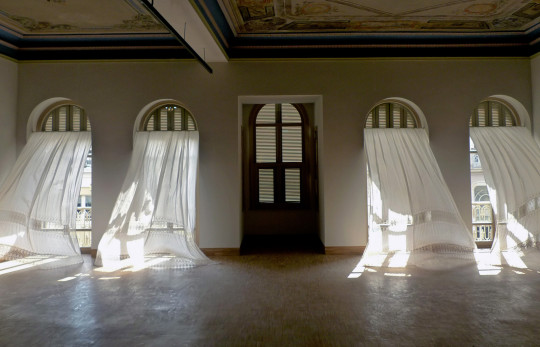
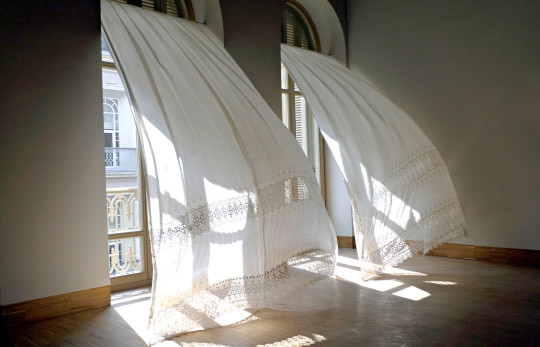
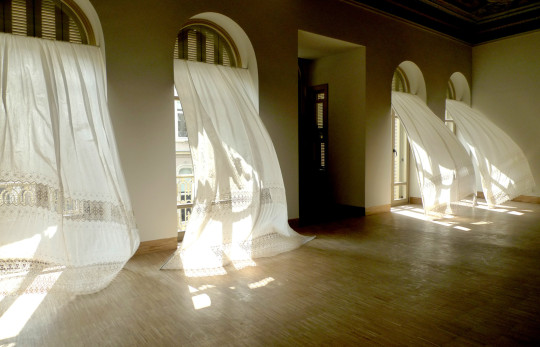

Melancholia in Arcadia
Gabriel Lester
2011, lace curtains, textile hardener
SALT, Istanbul, Turkey
19K notes
·
View notes
Photo

(via When in Paris uploaded by @ClassyasChanel on We Heart It)
3 notes
·
View notes
Photo





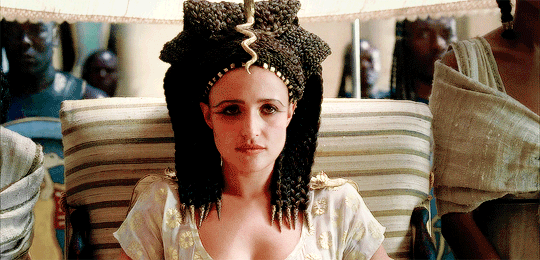




PERIOD DRAMA APPRECIATION WEEK | Day 1: Fav Period Drama
Four hundred years after the last king was driven from the city, the Republic of Rome rules many nations, but cannot rule itself. The city is constantly roiled by conflict between the common people and the nobility. Power is shared, and order maintained by two soldiers, old friends Gnaeus Pompey Magnus and Gaius Julius Caesar. Once, Pompey was acknowledged by all to be the greater man, but for the last eight years, while Pompey has kept the peace in Rome, Caesar has waged a war of conquest in Gaul, that has made him even more rich and popular. The balance of power is shifting, and the nobility have grown fearful - Though of noble blood himself, Caesar stands with the common people. A man like that, an aristocrat with soldiers, money and the love of the people… Might make himself king.
773 notes
·
View notes
Text
“Caesar decided it was time to give the young man some administrative experience. He turned over to him the responsibility for managing the theatrical program of the triumphal celebrations. Keen to show his commitment, Octavian stayed to the end of all the performances, even on the hottest and longest days. This strained his already delicate health and he fell seriously ill. Caesar was beside himself with anxiety and, to cheer him up, visited the sufferer every day or sent friends in his place. Doctors were in permanent attendance. On one occasion a message came while he was dining that Octavian had suffered a serious relapse and was in danger of dying. The dictator leaped up at once and ran barefooted to the house where Octavian lay. Frantic and deeply upset, he cross-examined the doctors about their patient’s prognosis and then sat down by the boy’s bedside. Gradually Octavian recovered, but he remained weak for some time.”
Augustus: The Life of Rome’s First Emperor, Anthony Everitt.
23 notes
·
View notes
Photo








- he does not listen to me!
- on the contrary, i think you are the only person in the world he does listen to.
for @marymorevnas
419 notes
·
View notes
Text
“[Agrippa] was “more a rustic at heart than a man of refined tastes,” although he admired great art and argued that all paintings and sculptures should be nationalized rather than spirited away into private collections where they were never seen. He was a collector on a grand scale, spending an astonishing 1.2 million sesterces on two paintings—one of them depicting the Greek hero Ajax and the other Aphrodite—which he installed in the public baths he built. By contrast, Maecenas could almost “outdo a woman in giving himself up to indolence and soft luxury.” He delighted in silks and jewels; he was an epicure, who introduced to fashionable dining tables a new delicacy, the flesh of young donkeys; and he was reputed to have been the first person to build a heated swimming pool in the capital. He was married to the beautiful but arrogant Terentia. They were always quarreling, but her husband remained fond of her and invariably sought reconciliation. It was said of him that he married a thousand times, although he only had one wife. […]Agrippa could not stand Maecenas’ exotic and effeminate manners. Straightforward, direct, and loyal, he was the finest general and admiral of the age. He made up for Octavian’s lack of military skills, as had been tacitly acknowledged by the award of the corona rostrata for his services in the Naulochus campaign. The war against Sextus Pompeius would not have been won without him, and he had been discreetly invaluable in Illyricum. Now, as the mastermind of victory at Actium, he received the right to display an azure banner and (of more practical value) the freehold of country estates in Egypt. Agrippa was completely loyal to Octavian and to the public service. In fact, he regarded them as one and the same, and it would be a bad day for the regime were he ever to see them as different. […]He held official posts, but was as uninterested in the trappings of authority as Maecenas, albeit for a completely different reason. While Maecenas could not really be bothered with power (being satisfied with influence), Agrippa cared for it passionately—but only for its reality.
Augustus: The Life of Rome’s First Emperor, Anthony Everitt.
46 notes
·
View notes
Text
We are with Lady Octavia until her final moments. Then she asks for her brother, the emperor, and he comes to her bedside. He shuts the door on us, so I do not know what passes between them. I do not hear Octavia’s last words. I only hear the world as it is without her, more hollow and silent by far. (p. 210)
[…]
Unable to endure public scrutiny after the loss of his sibling, the emperor has withdrawn to our house across the Tiber, where citizens are not free to approach him. In the days following Octavia’s funeral, the emperor spends his evenings by a warm fire in our study, cloistered with Juba, reminiscing or making battle plans or whatever else it is the two of them discuss when I am not in the room.
We indulge the emperor as our guest—what other choice do we have?—but he notices our servants packing our trunks and readying for our springtime journey. And when I come upon him in the dining room, he insists, “You and Juba cannot leave me now, when I am utterly abandoned.”
He means Octavia, of course. If he can grieve—if he is human enough for that—he is grieving for his sister. She was the moral center of his family. Like a Vestal Virgin, she tended the fire at the heart and hearth of the Julii. Now the fire has gone out and his inner circle has narrowed again. Octavia was always his true dynastic partner. The only person who knew him since childhood and still loved him. And I cannot help but think that if he were Egyptian, he might have married Octavia. Perhaps he would have been a better man if he had married his sister, who encouraged his good qualities, instead of Livia, who has helped goad him to every evil. Had he married Octavia, the whole twisted mess he’s made of his family might never have come to pass. But of course, he is Roman and would think taking his sister to wed more depraved than all his other wicked deeds …
Now he is isolated, unsure of whom to trust, and aware that Livia holds unspeakable sway. He cannot harm her without unleashing her sons, both of whom are woven so tightly into his family and his structure of power that he cannot shake them.
And so, bereft, the emperor leans upon me and my husband. (p. 318)
-Daughters of the Nile
ooh la la
Keep reading
15 notes
·
View notes
Photo

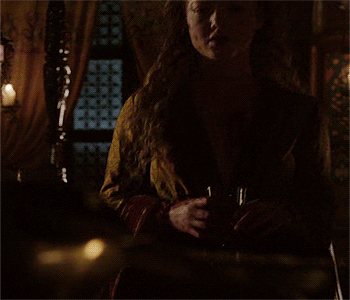

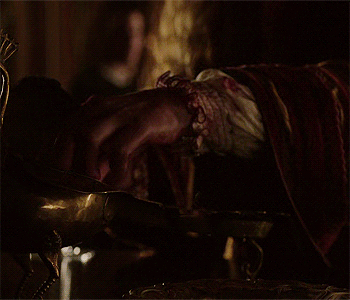




[…]Lucrezia could not be missing among the preparers of poisons. About her Giulia Farnese, in one of her many letters to her lovers, wrote that: “Lucrezia is passionate about alchemy, chemical experiments, she is good at mixing arsenic and antimony, silver nitrate and Saturn’s sugar**.”
- La Saga dei Borgia: delitti e santità, Antonio Spinosa. Note: **The Saturn sugar, zucchero di Saturno, mentioned here is Lead (II) acetate, a white crystalline chemical compound that was historically used as a sweetener in wines and other foods, as well as used in cosmetics. Most commonly in hair colouring dyes, as one of its the principal active ingredients.
345 notes
·
View notes
Photo


costume appreciation: 1/? → Octavia of the Julii - Rome HBO
101 notes
·
View notes
Photo








Gaius [future emperor Augustus] made two special school friends, very different from each other in personality. The first was Marcus Vipsanius Agrippa, a year younger than Gaius. The origins of his family are unknown, but Suetonius says that he was of “humble origin”; the name “Vipsanius” is highly unusual and Agrippa himself preferred not to use it. He may have come from Venetia or Istria in northern Italy. Like the Octavii, the family was probably of affluent provincial stock. (…)
Gaius’ second friend, Gaius Cilnius Maecenas, boasted a distinguished ancestry. He traced his lineage to the splendid, mysterious Etruscan civilization, based in today’s Tuscany, which dominated central Italy before the rise of Rome. (…) By the first century B.C., though, the family had come down somewhat in the world: they were now equites.
If one may judge by their later careers, Agrippa was likely a tough, down-to-earth boy who enjoyed physical exercise and warlike pursuits, while Maecenas had a more pacific, even feminine temperament and was especially interested in literature and the arts. They grew into adulthood alongside Gaius, learning to accord him total trust and forming a lasting, loving bond with him. (Augustus: The Life of Rome’s First Emperor - Anthony Everitt)
216 notes
·
View notes
Photo








Esteemed senators, I take this first moment before you not to glorify myself, but to honor my father. In his honor I declare that my term as Consul shall usher in a new era. An era of moral virtue, of dignity. The debauchery and chaos we have had to endure will now end. Rome shall be again as she once was, a proud republic of virtuous women and honest men. I speak to you now not as a soldier, or citizen, but as a grieving son. As my first act in this reborn Republic, and in honor of my father, I propose a motion…to declare Brutus and Cassius murderers and enemies of the state.
244 notes
·
View notes
Photo








“In the same year, 40 B.C., Octavia, Octavian’s sister, lost her elderly husband, Gaius Claudius Marcellus, and, perhaps five years older than her brother, became a highly eligible widow (albeit with two daughters and an infant son). The proposition that the treaty should be sealed by their marriage was irresistible. […]there was a benign precedent for such a union in the long-ago and extremely happy marriage between Pompey the Great and Julius Caesar’s daughter, Julia. As long as she lived the two warlords had stayed friends; history would now be given an opportunity to repeat itself.
Octavian’s short but dazzling political career had exposed a ruthlessness that overrode ordinary affection, but on this occasion we may guess that he sincerely wanted reconcilation with Antony. Plutarch records that he was “deeply attached to his sister, who was, as the saying is, a wonder of a woman.” He is unlikely to have handed her over into the hands of his unpredictable and womanizing colleague if he did not have his adoptive father’s example in mind.”
Augustus: the Life of Rome’s First Emperor, Antony Everitt.
290 notes
·
View notes
Photo








Your husband has plenty of grain in Egypt. But he is playing politics with it, holding it back. If you were to go and talk to him…
394 notes
·
View notes













